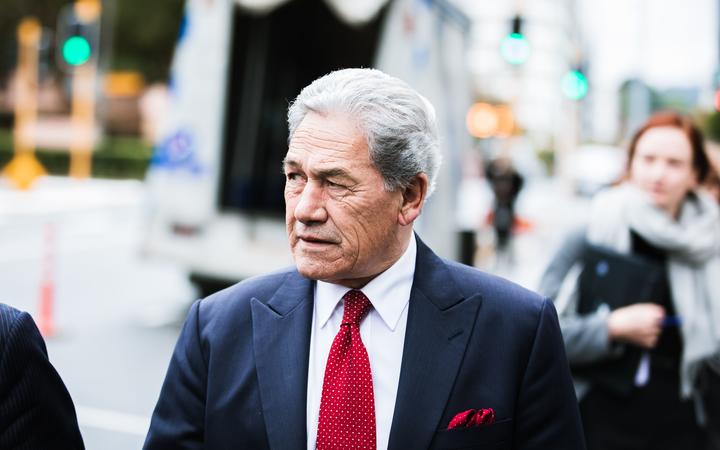The New Zealand First leader's comments follow revelations Solomon Islands is negotiating a security deal with China. Under the terms of a leaked draft agreement, Beijing could be allowed to base warships less than 2000km off Australia's east coast.
Speaking with RNZ, Peters said the development was cause for serious concern.
"What is its purpose? And why is it needed? There is no military threat in the Pacific... so what would be the purpose of a security arrangement?"

Peters said New Zealand, Australia, the United States, and United Kingdom had failed the Pacific for decades and he hoped the chickens were not coming home to roost.
The 'Pacific Reset' - which Peters launched in 2018 - went some way to turning relationships around, but the current government had not kept up the tempo required, he said.
"We needed to intensify our interests.
READ MORE
- Shock China security deal shows Pacific powers need to face facts
- Decision to bring China’s military into the South Pacific in the hands of Solomon Islands PM
- Leaked agreement points to growing Chinese influence in Solomons
- The Solomon Islands show no sign of backing down from security deal with China
"There are a lot of excuses that will be given - like the advent of Covid and economic circumstances - but the reality is that... we should have accelerated, not backed off."
Nanaia Mahuta took over as foreign minister after the 2020 election, and late last year, pledged to build on the 'reset' strategy and shift to a focus on 'resilience'.
Mahuta, however, has yet to visit any Pacific countries, aside from Australia, with Covid-19 hampering travel. She is scheduled to make her first trip this week to Fiji.
Peters told RNZ that was not good enough.
"Frankly, that's not enough time or frequency to validate whatever the government is trying to do. You've got to try harder than that. Much harder."
RNZ has approached Mahuta for comment, but she has yet to respond.
National Party foreign affairs spokesperson Gerry Brownlee acknowledged the constraints of Covid-19 restrictions, but said the Pacific should have been Mahuta's "first port-of-call" as minister.
"They are the countries that have the closest relationship with us and look to us in many ways for a kind of leadership," Brownlee said.
"If we want them to be in the same space as us in the international forum, then of course we should have shown them that respect much sooner."
Brownlee, however, pushed back against the suggestion New Zealand had neglected the Pacific, saying it had a "very significant" foreign aid budget.
"When you've got a very big emerging power in China... their ability to buy influence with the cheque book, and in this case, foothold potentially, is so much greater than we could ever compete with."
Brownlee said the potential security deal was "a concern" but, ultimately, Solomon Islands was a "sovereign government".



